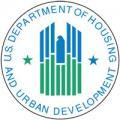Types of Purchasers
Anyone can purchase a HUD property. There are two types of general purchasers: Owner Occupants and Investors. There are also several special programs for purchasers who qualify.
Owner Occupant Purchasers
An Owner Occupant Purchaser is a purchaser who will be living in the property that they intend to purchase. The following regulations apply to owner occupant purchasers:
1. Must certify that they will live in the property as their primary residence for at least 12 months.
2. Must certify that they have not purchased a HUD owned property as an Owner Occupant Purchaser (regardless of financing type) within the last 24 months.
The Owner Occupant Priority Period
All new property listings have an Owner Occupancy priority period in which only owner occupant purchasers will be considered. This period is the first 10 days that the property is listed on the Internet. (Some cities have extended owner occupant periods – this information would be noted on the Property listings on the website). If a contract is cancelled and the full 10 days on the market have not been fulfilled the property will be offered exclusively to Owner Occupants until after this period has been completed. Price reductions are sometimes made on properties and for 5 days after a price reduction preference will be given to Owner Occupant buyers. Bids by investors will not be considered until the final day of the Owner Occupancy Period.
Investor Purchasers
An investor purchaser is a purchaser who does not intend to live in the property being purchased as a primary residence. An investor may purchase a HUD property to re-sell, rent, or lease the property after settlement with HUD has been completed. Investor Purchasers also include a purchaser who is buying a HUD property as a second home and does not intend to occupy the property as their primary residence.
Officer Next Door Participants
A person qualifies as a law enforcement officer for the purposes of the GNND Sales program if the person is (a) employed full-time by a law enforcement agency of the federal government, a state, a unit of general local government, or an Indian tribal government; and (b) In carrying out such full-time employment, the person is sworn to uphold, and make arrests for violations of federal, state, tribal, county, township, or municipal laws. The person must agree to live in the home as his/her sole residence for the duration of the owner-occupancy period. Neither the person (nor his/her spouse) may have owned any residential real property during the year prior to the date of submitting a bid on the home being acquired. Neither the person nor spouse may have ever purchased another home under the GNND sales program or under the OND/TND Sales programs.
Teacher Next Door Participants
A person qualifies as a teacher for the purposes of the GNND Sales Program if the person is:
(a) Employed as a full-time teacher by a state-accredited public school or private school that provides direct services to students in grades pre-kindergarten through 12; and
(b) The public or private school where the person is employed as a teacher serves students from the area where the home is located in the normal course of business.
The person must agree to live in the home as his/her sole residence for the duration of the owner-occupancy period. Neither the person (nor his/her spouse) may have owned any residential real property during the year prior to the date of submitting a bid on the home being acquired. Neither the person nor spouse may have ever purchased another home under the GNND sales program or under the OND/TND Sales programs.
Firefighter Next Door Participants
A person qualifies as a firefighter for the purposes of the GNND Sales Program if the person is employed full-time as a firefighter by a fire department or emergency medical services responder unit of the federal government, a state, unit of general local government, or and Indian tribal government serving the area where the home is located.
The person must agree to live in the home as his/her sole residence for the duration of the owner-occupancy period. Neither the person (nor his/her spouse) may have owned any residential real property during the year prior to the date of submitting a bid on the home being acquired. Neither the person nor spouse may have ever purchased another home under the GNND sales program or under the OND/TND Sales programs.
Emergency Medical Technician Next Door Participants
A person qualifies as an Emergency Medical Technician for the purposes of the GNND Sales Program if the person is employed full-time as a firefighter by a fire department or emergency medical services responder unit of the federal government, a state, unit of general local government, or and Indian tribal government serving the area where the home is located.
The person must agree to live in the home as his/her sole residence for the duration of the owner-occupancy period. Neither the person (nor his/her spouse) may have owned any residential real property during the year prior to the date of submitting a bid on the home being acquired. Neither the person nor spouse may have ever purchased another home under the GNND sales program or under the OND/TND Sales programs.
Approved Non-Profit Agencies
HUD-approved Non-Profits receive a discount on purchasing HUD properties. This discount is between 10% and 30% off the purchase price of the property and is based on the insurability and location of the property. The non-profit agency MUST be a HUD Registered Non-Profit Agency to qualify for the discount for more information on how to become a HUD approved Non-profit please click the link below.
Government Agencies
HUD is offering local governments the opportunity to take advantage of a unique HUD resource - HUD Homes for Sale - at a bargain rate of $1, plus closing costs. The new Dollar Homes Initiative will allow local governments to purchase select HUD Homes for Sale for $1 and use them as part of a community revitalization or neighborhood affordable housing strategy. The HUD Homes available under this new program are those that have been on the market for six months or more. Local governments can partner with local non-profit homeownership organizations or tap into existing local programs to resell the homes to low- and moderate-income residents of the community. In these cases, the local governments will be required to purchase these properties and convey it to the non-profit organizations for rehabilitation and resale to first-time homebuyers. Hundreds of properties are available currently and new houses will be added on a weekly basis.
For futher details click here.




